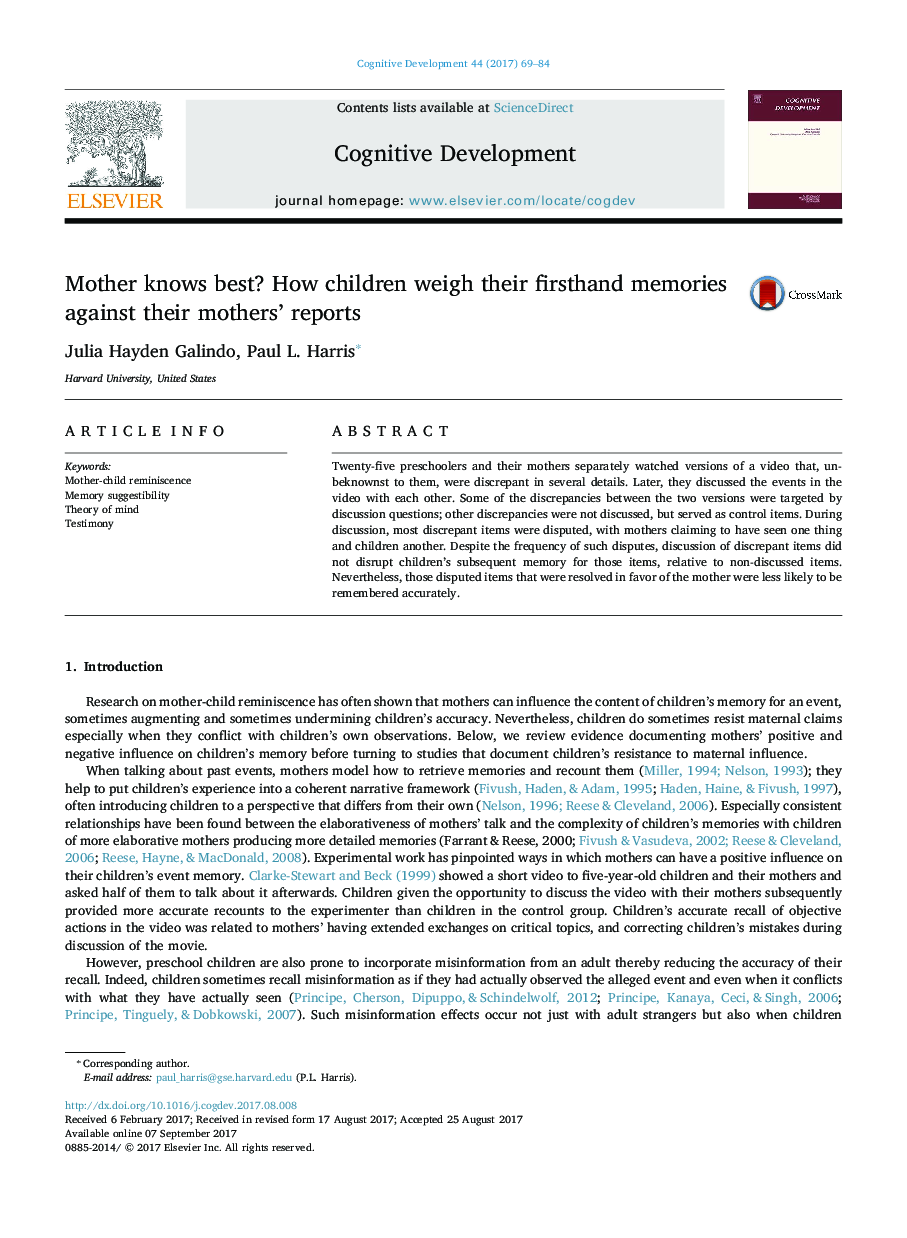| Article ID | Journal | Published Year | Pages | File Type |
|---|---|---|---|---|
| 5039627 | Cognitive Development | 2017 | 16 Pages |
â¢Preschoolers and their mothers watched discrepant versions of the same video.â¢Disputes often arose when mother-child dyads discussed what they had seen.â¢Most disputes went unresolved, with children affirming what they had seen.â¢When a dispute was resolved, children typically deferred to their mother.â¢Discussion did not undermine children's memory for what they had seen in the video.
Twenty-five preschoolers and their mothers separately watched versions of a video that, unbeknownst to them, were discrepant in several details. Later, they discussed the events in the video with each other. Some of the discrepancies between the two versions were targeted by discussion questions; other discrepancies were not discussed, but served as control items. During discussion, most discrepant items were disputed, with mothers claiming to have seen one thing and children another. Despite the frequency of such disputes, discussion of discrepant items did not disrupt children's subsequent memory for those items, relative to non-discussed items. Nevertheless, those disputed items that were resolved in favor of the mother were less likely to be remembered accurately.
